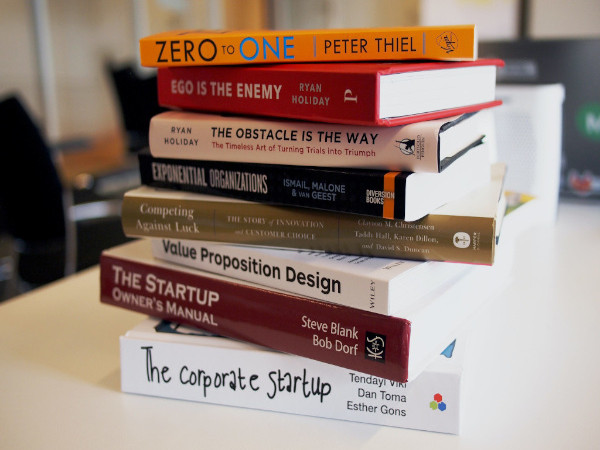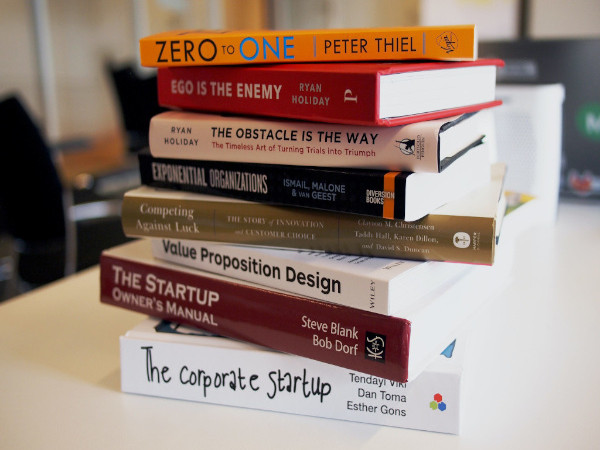While not everybody feels that their identity affects their finances, queer people face disproportionate levels of homelessnness, carry more debt, and have more healthcare hurdles than their straight, cis-gendered peers.
This Pride month, we’re highlighting stories from members of Betterment’s queer community and sharing the creative ways that they approach money in their everyday life.
Get to know our employees with a fun fact.
Troy Healey, 401(k) Client Success Manager (he/him): I lived in South Africa for a year.
Crys Moore, Product Design Manager (they/them): I’m an avid rock climber. I’ve climbed all over the U.S, as well as Mexico and Cuba.
Sumaya Mulla-Carrillo, Social Media Coordinator (she/her): In addition to my full time job, I’m also a professional dancer.
Ricky Whitcomb, Customer Support (he/him): I love cooking and run a food/cooking Instagram account.
Woot Hammink, Banking Operations Manager (he/him): My family has farms on three continents!
Maria Howe, Sales Development Representative (she/they): I almost never wear matching socks—must be my Aries energy.
The path to financial freedom looks different for everybody. Here are some of the goals we’re working towards.
Woot Hammink, Banking Operations Manager (he/him): My partner and I have been mulling over buying a home! It’s a big, scary investment in a place like New York City.
Crys Moore, Product Design Manager (they/them): Saving for a house.
Sumaya Mulla-Carrillo, Social Media Coordinator (she/her): Saving for a trip to Italy, and also working towards 1.5 million in retirement.
Maria Howe, Sales Development Representative (she/they): Now that I’m on top of my student loans, my partner and I are starting to save for a home.
Ricky Whitcomb, Customer Support (he/him): Saving for my wedding.
Troy Healey, 401(k) Client Success Manager (he/him): Saving for a cruise ship trip for post COVID-19 travel!
Healthy habits make all the difference in doing what’s best for you and your money. Here are some ways our employees are reaching their goals.
Sumaya Mulla-Carrillo, Social Media Coordinator (she/her): I use auto-deposit for pretty much every account, and I also save any windfalls or extra money from dancing professionally towards my financial goals.
Troy Healey, 401(k) Client Success Manager (he/him): Automation! I deposit $100 every Tuesday into my cruise savings!
Ricky Whitcomb, Customer Support (he/him): Prepping my lunches as opposed to ordering out, and saving a percentage of my paycheck.
Woot Hammink, Banking Operations Manager (he/him):
First: Recurring deposits to a Home Ownership goal. We’ve got to start from somewhere.Second: We check in with each other frequently, and talk about what we’re open to and comfortable with. Since we’re not married, ownership gets even more complicated.
Maria Howe, Sales Development Representative (she/they): This may be counterintuitive, but after a lot of time spent in grad school and having a tight budget, little indulgences (like dinner out with my partner) are key to making sure I don’t go wild and break my budget.
Crys Moore, Product Design Manager (they/them): I auto-deposit into my house goal. Otherwise, I’d spend that money on something else.
Our approach to money can change drastically over time, and as we age, perspectives on money shift. Members of the BetterPride community shared advice to their younger self.
Ricky Whitcomb, Customer Support (he/him): Open a savings account and don’t touch it.
Crys Moore, Product Design Manager (they/them): Money is real and has real consequences. It’s not monopoly money. That student loan debt comes back around. Choose wisely young Crys!
Maria Howe, Sales Development Representative (she/they): I’d tell myself to go look up IRAs! I knew so little about tax advantaged accounts until working at Betterment. My money could have worked harder for me if I had known more.
Woot Hammink, Banking Operations Manager (he/him): I’d first agree with my younger self that money should be more colorful than our green USD. I’d also take saving earlier more seriously, and spend less money at Dairy Queen.
Troy Healey, 401(k) Client Success Manager (he/him): Just make sure if you are going to spend it, you got it in the bank!
Sumaya Mulla-Carrillo, Social Media Coordinator (she/her): Take it slow and steady. I always want to achieve my goals as fast as possible, but in reality I have to slow down and stay the course for a while before seeing results.
Has your identity influenced your relationship with money in any way? Why or why not?
Maria Howe, Sales Development Representative (she/they): As a queer person who was socialized as a woman, I subconsciously didn’t think of myself as a future breadwinner during formative years. Now that my partner and I are at the point in our lives where we are saving for goals like a house and family, I’m more aware of living in a society where a gender wage gap exists and I’m working hard to catch up!
Crys Moore, Product Design Manager (they/them): Even though I have a ton of skin privilege because I’m white, being visibly queer sets me back compared to my cisgender heterosexual peers. Society works for them in ways it doesn’t work for me. Most things are a bit harder.
Sumaya Mulla-Carrillo, Social Media Coordinator (she/her): Yes and no—I don’t think it influences my spending or saving habits, but I do know that I’ll eventually have more expenses around having a child, or any legal fees that come with adoption. I’m always mentally preparing myself for that major life expense.
Ricky Whitcomb, Customer Support (he/him): When I was younger I definitely felt the need to have the nicest brands and newest styles and now I’m a very happy boring dresser who doesn’t spend his paychecks on jeans.
Troy Healey, 401(k) Client Success Manager (he/him): No! I am a frugal spender… frugality applies to gay or straight!
Woot Hammink, Banking Operations Manager (he/him): Definitely! Being in a “nontraditional” relationship blurs a lot of lines when it comes to long term planning and saving. I’ve never felt like I have a traditional “Game of Life” style plan, where a simple path can lead me to success.
Begin your financial journey
Join Betterment>
If you’re interested in joining our team, check out the Betterment careers page! We’re always looking for passionate candidates to join our company.



















